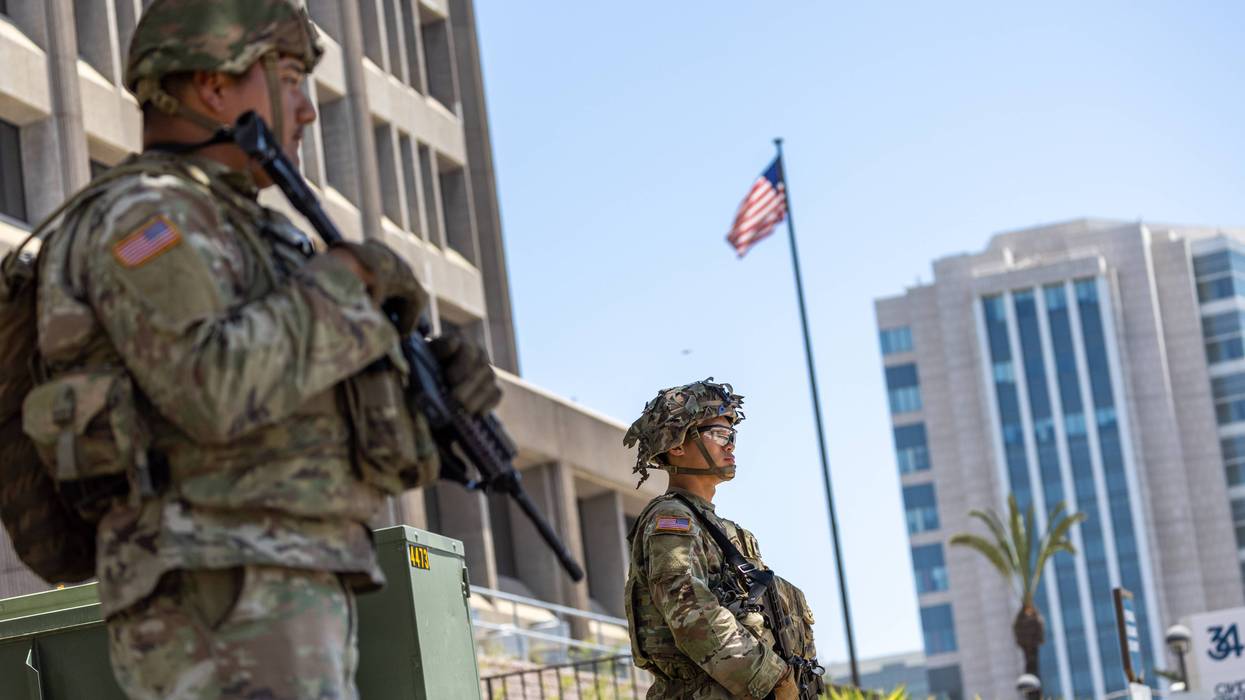The video, which was taken on December 9 from body cameras worn by four of the staffers, showed officers choking Brooks, one person kicking him and forcing him onto an exam table, one punching his upper body, and two officers dragging his limp body over across the room and trying to hoist him up against a window.
Brooks, who was 43, was pronounced dead the following day at a hospital. An autopsy report has not yet been released. A preliminary report from the medical examiner's office showed "concern for asphyxia due to compression of the neck as the cause of death, as well as the death being due to actions of another."
At the rally on Monday, his son, Robert Brooks Jr., said Brooks "had a loving, generous heart and a special concern for young people" and said the family's "deepest wishes are that my father's death will not be in vain."
"His killing must be a catalyst for change," he said.
Brooks' father also spoke at the vigil, decrying the actions of both the people who beat his son and of a nurse at the facility who, according to the video, stood by and watched while the beating took place.
"When you have taken the law officers' oath of honor, the Hippocratic oath, or the Florence Nightingale Pledge for nurses, but you participate or sit idly by smiling and chatting as if this was just another day at the office, while a man is being beaten to death, that's evil," he said. "Between 2016 and 2019, approximately 15,679 fathers, daughters, mothers, and sons died in state prisons. They say 47% died from illnesses—I don't believe it. After watching that video, there is nothing they can tell me that I will believe."
Brooks was more than halfway through serving a 12-year sentence for assault, which he had been serving at nearby Mohawk Correctional Facility. He was moved to Marcy on the day of the attack, The New York Times reported.
The Correctional Association of New York, the state's independent prison watchdog, completed a report on Marcy in 2022, finding that 70% of inmates reported racial bias among staff members. Brooks was Black and the officers in the video—like 91% of the prison's staff members, according to the 2022 report—were white.
Four out of five inmates reported having experienced or witness abuse my correctional officers or other staffers, with one saying physical abuse was "rampant" and reporting that an officer had told him Marcy was "a hands-on facility."
The Times reported on Saturday that at least three of the guards implicated in Brooks' beating had previously been named in federal lawsuits filed by inmates who they attacked; one plaintiff was left using a wheelchair after the beating and another was disfigured.
Elizabeth Mazur, an attorney who is representing Brooks' family, told Rochester-based CBS affiliate that the reports about the officers raise "questions about you know whether there's a real cultural problem that's been allowed to fester at Marcy or sort of within the prison system in general."
"The way that Mr. Brooks was killed is just horrifying," she said. "It's terrible enough to lose a loved one, especially an incarcerated loved one when the family knows that they weren't with them during their final moments, but I think it's especially hard to know that you've lost a loved one this way—to this kind of senseless act of violence."
The family is planning to file a civil lawsuit in the future, Mazur said.
Rallies were also held to demand justice for Brooks in New York City, with supporters gathering outside Gov. Kathy Hochul's office.
"We are not going to sit down and just pray, and just hope," said Rev. Kevin McCall, a community activist. "We are demanding that every single person, every single thug, that had anything to do with the death of Robert Brooks be fired and arrested."
The New York State Department of Corrections and Community Supervision said Monday that 13 people involved in the attack have been suspended without pay, while one person has resigned.




